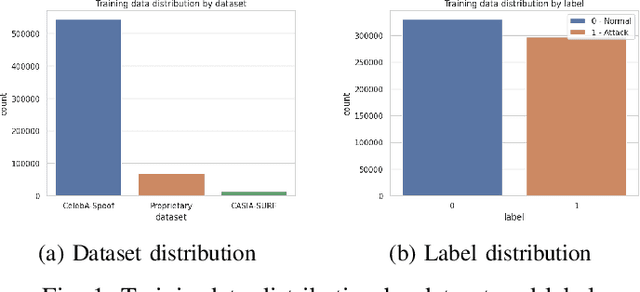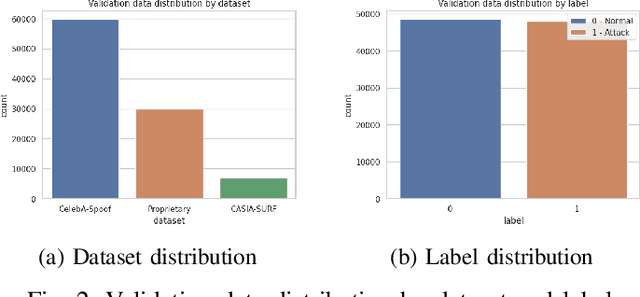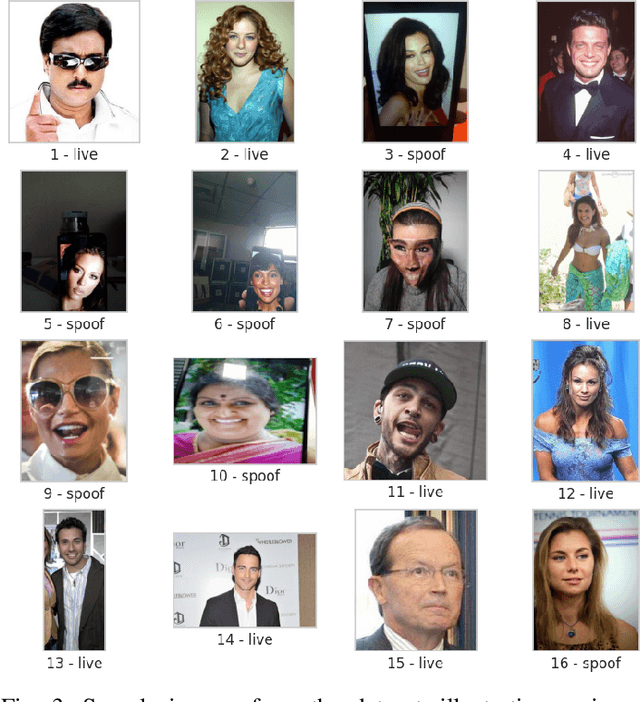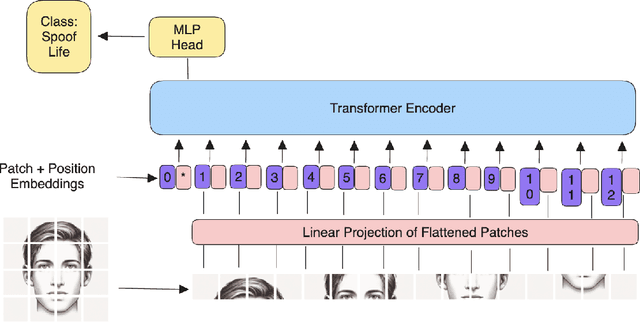Liveness Detection in Computer Vision: Transformer-based Self-Supervised Learning for Face Anti-Spoofing
Paper and Code
Jun 19, 2024



Face recognition systems are increasingly used in biometric security for convenience and effectiveness. However, they remain vulnerable to spoofing attacks, where attackers use photos, videos, or masks to impersonate legitimate users. This research addresses these vulnerabilities by exploring the Vision Transformer (ViT) architecture, fine-tuned with the DINO framework. The DINO framework facilitates self-supervised learning, enabling the model to learn distinguishing features from unlabeled data. We compared the performance of the proposed fine-tuned ViT model using the DINO framework against a traditional CNN model, EfficientNet b2, on the face anti-spoofing task. Numerous tests on standard datasets show that the ViT model performs better than the CNN model in terms of accuracy and resistance to different spoofing methods. Additionally, we collected our own dataset from a biometric application to validate our findings further. This study highlights the superior performance of transformer-based architecture in identifying complex spoofing cues, leading to significant advancements in biometric security.
 Add to Chrome
Add to Chrome Add to Firefox
Add to Firefox Add to Edge
Add to Edge